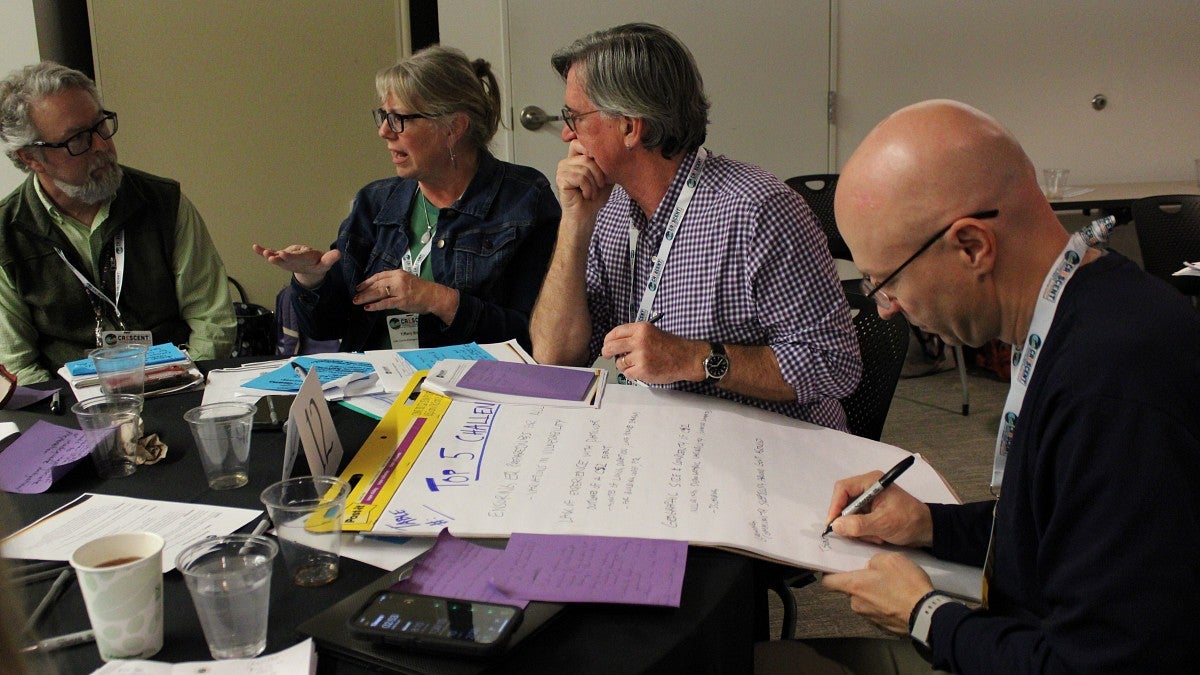
July 22, 2024 - 9:00am
The Cascadia Region Earthquake Science Center (CRESCENT) has awarded 14 grants to researchers across the US and beyond to study the Cascadia subduction zone, a massive fault along the West Coast that could generate a magnitude 9.0+ earthquake at any moment.
To explore how the impending “Big One” would impact the region, the University of Oregon has partnered with 12 other institutions to form the nation’s first subduction zone earthquake hazards center. Led by Earth sciences faculty members in the College of Arts and Sciences, the center is dedicated to pursuing three primary goals: understanding the Cascadia subduction zone, diversifying the geosciences, and increasing collaboration between researchers and policymakers to communicate earthquake-related hazards.
The CRESCENT Seed Grant Program was established to enlist more researchers in the effort to meet those goals.
“There are many outstanding questions surrounding the nature of the Cascadia subduction zone” said UO Earth Scientist and CRESCENT lead investigator Amanda Thomas. “By sponsoring researchers in the broader community, we can catalyze exciting scientific investigations into Cascadia and further support CRESCENT's outreach and education goals.”
The center invited the scientific community to apply for small grants of up to $30,000 for research that addresses key scientific challenges identified through CRESCENT’s three major pillars: science, geoscience education and inclusion, and partnerships and applications. Early career researchers received about one-third of the seed grants.
Funding for the seed grants comes from CRESCENT’s five-year grant from the National Science Foundation. The center will continue to offer seed grants annually for the duration of its NSF grant.
The 2024 awardees include:
- Rasheed Ajala and collaborator Folarin Kolawole, Columbia University
- Adam Booth and collaborator Obinna Ozioko, Portland State University
- Michael Brudzinski, Miami University
- Joseph Byrnes, Northern Arizona University
- Ashly Cabas, North Carolina State University and collaborators Renmin Pretell, University of Nevada – Reno; and Gonzalo Montalva, University of Concepción Chile
- J. Pablo Canales, Woods Hole Oceanographic Institution
- Alice-Agnes Gabriel and collaborator Bar Oryan, University of California at San Diego
- Amalesh Jana and collaborator Armin Stuedlein, Oregon State University
- Larry Syu-Heng Lai, University of Washington and collaborators Madeleine Lucas, University of Washington; Jeffrey Beeson, Oregon State University/NOAA PMEL; Richard Parra, University of Washington; Alison Duvall, University of Washington; Janet Watt, USGS Pacific Coastal and Marine Science Center; Harold Tobin, University of Washington; Elisabeth Olson, University of Washington; and Tamara Aránguiz-Rago, University of Washington
- Ross Maguire, University of Illinois Urbana-Champaign
- Scott Marshall, Appalachian State University; Andreas Plesch, Harvard University; and collaborators John Shaw, Harvard University; Ashley Streig, Portland State University; and Colin Amos, Western Washington University
- Brett Maurer and collaborator Marc Eberhard, University of Washington
- Carol Sawyer and collaborator Frances Mujica, University of South Alabama
- Adam Schultz and collaborator Xiaolei Tu, Oregon State University
Visit the CRESCENT website for more information about the seed grant research.
